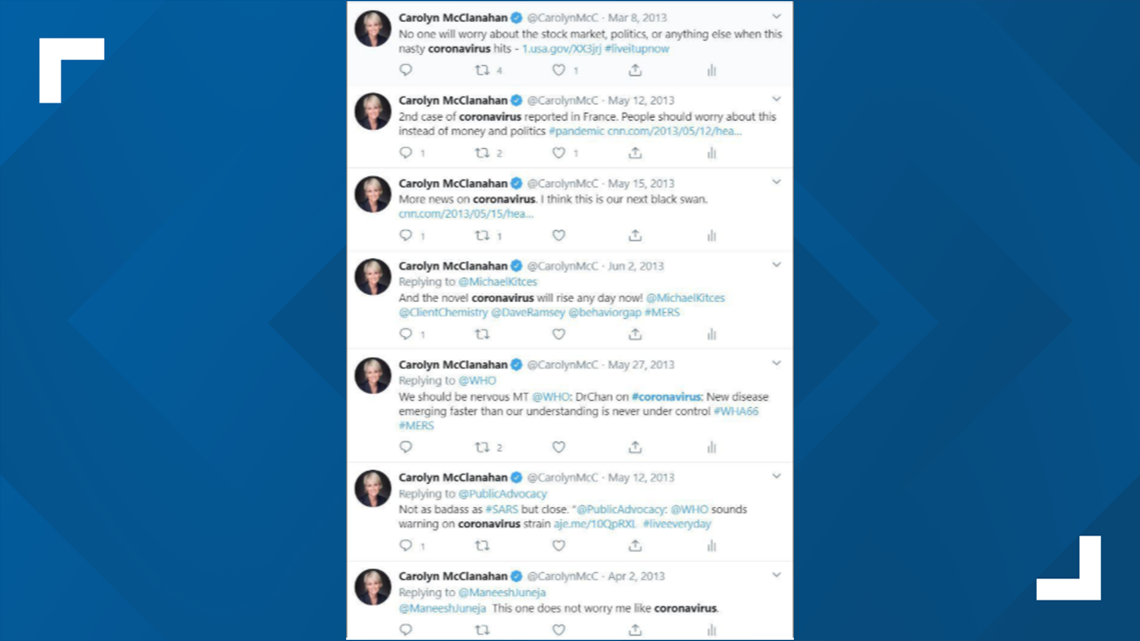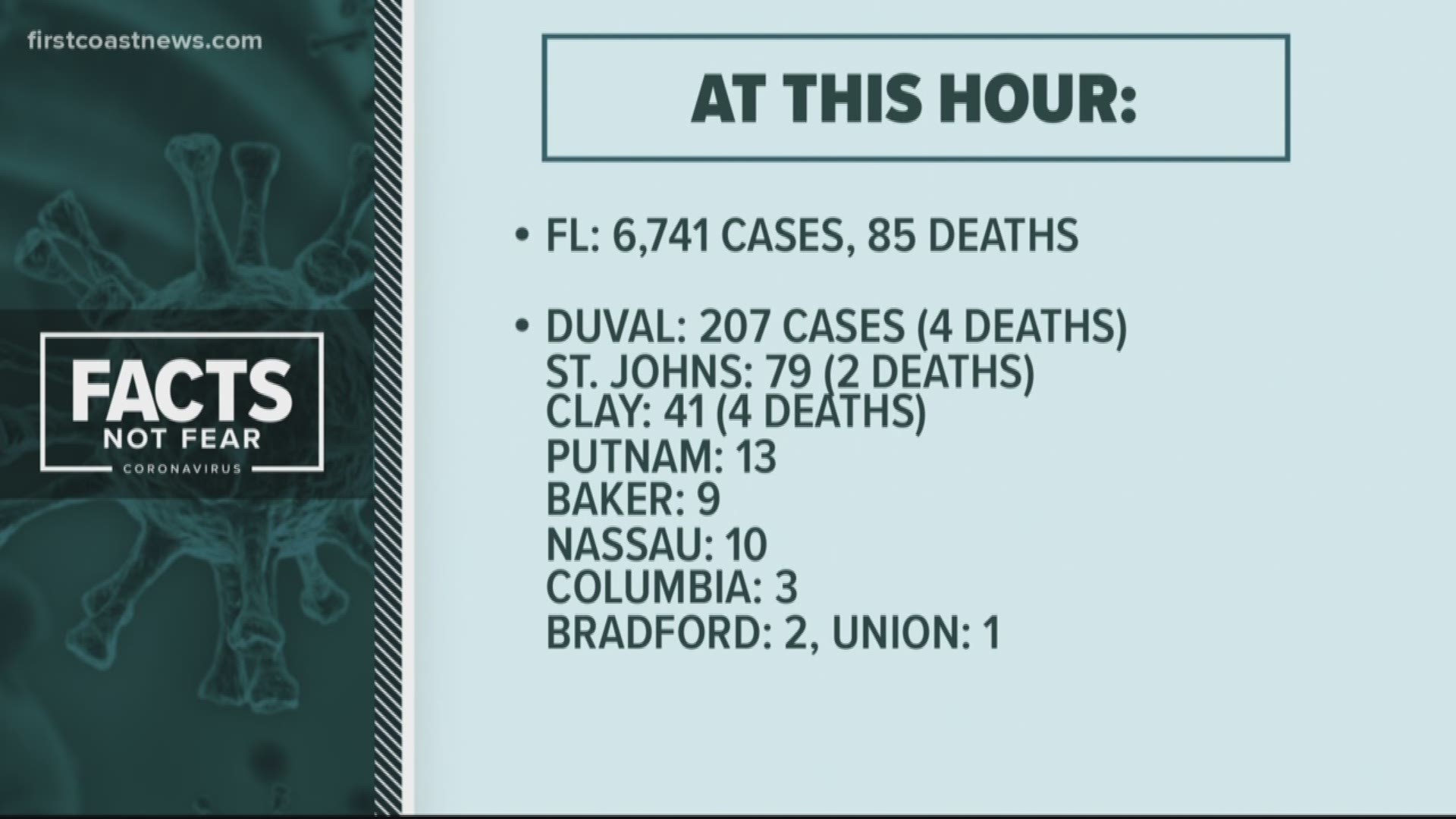JACKSONVILLE, Fla — Carolyn McClanahan predicted something like this could happen.
She even tweeted about it in early March — of 2013.
Before I go any further, I probably should give a disclaimer. I’ve known Carolyn for nearly 20 years. First as a friend, someone who along with her husband Trib is a part of the Jacksonville running community. Then, when I took a sabbatical year and my mom died, as someone to help us navigate finances.
I’ve always found her background intriguing. By age 40, she was a financial planner and a doctor.
She began her career as an emergency room physician and ended up going back to school for financial planning, founding Life Planning Partners.
For her, money and medicine aren’t separate areas of interest. She’s 55 now. And when she isn’t busy working or watching the butterflies hatch in her San Marco backyard, she is traveling the country, speaking 20 to 30 times a year about the intersection of health and finance.
Not that she can travel these days. Or have visitors join her for “hatching breakfasts” to watch the monarchs emerge.
At this historic intersection of health and finance, she could say, “I told you so.”
Instead she says, “I wasn’t prescient. I was just practical.”
She has long been sounding alarms about how a coronavirus could paralyze the world.
She tweeted about it March 8, 2013.
It was the first of more than a half dozen tweets that spring, hammering home a point she’s been trying to make for more than a decade: America needs to devote more resources to public health.


“No one will worry about the stock market, politics or anything else when this nasty coronavirus hits,” she tweeted that March.
“People should worry about this instead of money and politics,” she wrote that May, punctuating it with ”#pandemic.”
“More news on coronavirus,” she said three days later. “I think this is our next black swan.”
The World Health Organization had given a warning that a new strain of the coronavirus could be passed between people in close contact. A man who had vacationed in the United Arab Emirates had died after returning to France. A second man, who had shared a hospital ward with the first victim, also died.
McClahanan shared a couple of news stories about this, including one that quoted a top WHO official saying there was no evidence that the virus was able to sustain transmission in communities, a scenario the story said would “raise the spectre of a pandemic.”
“There is need for countries to ... increase levels of awareness,” said Keiji Fukuda, WHO assistant director-general.
That is what McClanahan hoped would happen.
Coronaviruses have been around forever. But what made that one particularly troubling was the severity of the symptoms. People weren’t just getting sick. They were dying. And while the number of deaths wasn’t going to make the nightly news in America, she believed it should have caused concern everywhere.
“It was causing the same pneumonia symptoms we’re seeing now,” she said. “I said, ‘All it has to do is make one little mutation to make it more infective and we’re cooked.’”
If we’d had a perfect healthcare system, she says, we would have “studied the hell out of that virus” and been better prepared for a future one. Instead, she watched as one of the wealthiest nations in the world kept cutting funding for public health, the country’s front-line defense in epidemics.
And so here we are now, at this historic intersection of health and finance.
“I sometimes wonder if I should’ve done more,” she said.
McClanahan stopped taking new clients years ago. So when she speaks or writes about money and medicine, she isn’t trying to recruit people. She is trying to change the way we think and operate — whether that means having fiduciary financial advisors (required to act in client’s best interest) or funding public health.
These days many of us are in our own cocoons. She is working from home, helping clients and watching the caterpillars that are starting to emerge — one small reminder that the world hasn’t completely stopped in 2020.
“I think I have about 200 caterpillars now,” she said. “So when they hatch, it’s going to be beautiful.”
RELATED: 'Beyond livid:' People laid off because of coronavirus angry over long wait to file for unemployment

